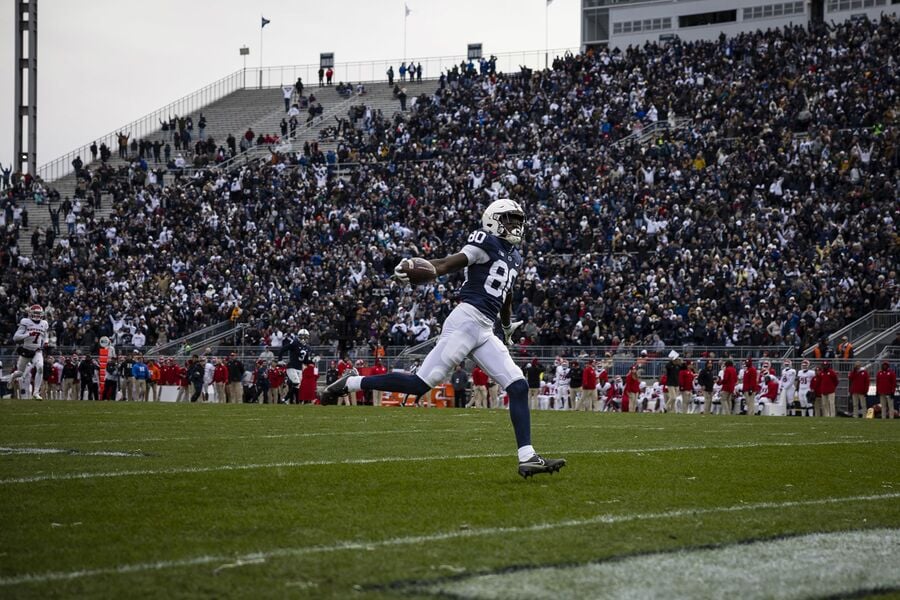

On Feb. 1, more than 48,000 high school student athletes across the country signed letters of intent to join collegiate sports programs at Division I or Division II schools — many of them enticed by significant earning potential through name, image and likeness, or NIL, opportunities.
Why is this significant? Until the NCAA lifted restrictions in June 2021, student athletes weren’t allowed to earn any money from sponsorships or endorsements. College sports are lucrative: Division I athletic programs brought in $13.3 billion in revenue to their campuses in 2021.
Among top athletes, a select few will likely take shortcuts and sign professional deals before they graduate a traditional four-year program. For others, money from NIL deals can be a steppingstone to a successful post-sports life and career.
Regardless of whether they pivot into traditional jobs or professional athletic careers, any amount of collegiate earnings has the power to change the very nature and potential trajectory of one’s life.
Financial advisors can play an active role in these student athletes' success.
Advisors need to speak the language of their young clients, but there's a generational gap. Today, the average age of a financial advisor is 55. Many student athletes with NIL deals will be from diverse backgrounds. You won’t necessarily win them over with slang or forced cultural references. But you can earn their trust and respect by treating them like an adult, and taking time to understand their journeys, distinct motivations, needs and goals.
Many of the tenets of wealth building apply to brand management. Making sound decisions that benefit individuals in the long run are wiser than short-sighted, risky propositions that promise quick results.
This generation understands their ability to challenge the status quo, and the power they have to effect change for good. They want to build an empire funded by, but also outlasting, their NIL deals.
Connect the dots by asking yourself: Where do they invest their time and energy? How do they present themselves on social media? How can they contribute positively to their communities? Understanding these factors can provide a comprehensive assessment of your client’s brand and how you can help them take control of it.
Racially diverse athletes could be distrustful of financial advisors; they likely have a very different (or no) experience with them to start. In fact, white households on average have 10 times the net worth of Black households, causing these minority groups to be overlooked by the industry and creating a greater chasm of distrust. These diverse athletes want to work with professionals who look like them … at the very least, advisors who understand them with a genuine and authentic approach.
I’m encouraged by the work that the CFP Board has done to promote racial and gender diversity in the profession — its latest numbers show “racially and ethnically diverse CFP professionals grew to 763 in 2022.”
Better understanding the profound distrust that Black Americans have in the traditional finance system, rooted in the Reconstruction Era, Black Wall Street and segregation-style policies including redlining, is key. These decades-long practices have had incredibly negative impacts on Black Americans' ability to build wealth.
We’re all people trying to navigate a tough economic climate and world.
Offering compassion, guidance and allyship, and providing a sounding board to young adults coming into large sums of money is one of the best ways financial advisors can make their work matter.
Dorian Langlais is co-founder, managing partner and executive director of DEI at Rally Point Public Relations.

Summit Financial unveiled a suite of eight new tools, including AI lead gen and digital marketing software, while MassMutual forges a new partnership with Orion.

A new analysis shows the number of actions plummeting over a six-month period, potentially due to changing priorities and staffing reductions at the agency.

The strategic merger of equals with the $27 billion RIA firm in Los Angeles marks what could be the largest unification of the summer 2025 M&A season.

Report highlights lack of options for those faced with emergency expenses.

However, Raymond James has had success recruiting Commonwealth advisors.
Orion's Tom Wilson on delivering coordinated, high-touch service in a world where returns alone no longer set you apart.
Barely a decade old, registered index-linked annuities have quickly surged in popularity, thanks to their unique blend of protection and growth potential—an appealing option for investors looking to chart a steadier course through today's choppy market waters, says Myles Lambert, Brighthouse Financial.
